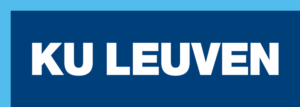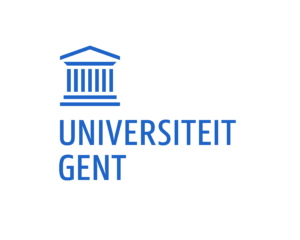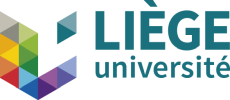
April 29th– 30th 2024, Brussels
On the occasion of the Belgian Presidency of the Council of the European Union, all ten universities of Belgium are delighted to invite researchers and policy makers to reflect on the European University Alliances as drivers of change and innovation in higher education. This high-level conference will explore multilingualism, inclusion, student and staff mobility, superdiversity in academia and the labour market, pedagogical innovations and the European Degree label. The conference will also focus on how the Alliances can contribute to an enhanced collaboration with our partner universities in the Global South.
Registrations for physical participation at the conference are closed. Registration for the online streaming will remain open until and during the conference itself.
Location: Brussels, ULB Campus Solbosch, Building K, Auditorium Henri La Fontaine
Opening Session: 17:15 – 18:00
Welcome by Prof. Dr. Jan Danckaert, Rector of VUB and President of VLIR
Keynote lecture by Pia Ahrenkilde Hansen, Director-General for Education, Youth, Sport and Culture
Public address by Caroline Gennez, Federal Minister of Development Cooperation
Welcome by Tom De Smedt, Deputy Head of the European Commission Representation in Belgium
Reception/Walking dinner: 18:00 – 21:00
Location: Brussels, European Commission, Albert Borschette Conference Center
Session 1: 9:00 – 10:00: The Future of Education and Language Learning in our Connected World
Lead partners: UCLouvain (Circle U) and VUB (EUTOPIA)
Break: 10:00 – 10:30
Session 2: 10:30 – 11:30: Cosmobility: Rethinking Student and Staff Mobility
Lead partners: ULB (Civis) and UGent (ENLIGHT)
Session 3: 11:30 – 12:30: Understanding and Applying Superdiversity in Academia, Higher Education and Beyond
Lead partners: ULiège (UNIC) and UHasselt (EURECA-PRO)
Lunch: 12:30 – 14:00
Session 4: 14:00 – 15:00: Alliances as Drivers of Pedagogical Innovation
Lead partners: UNamur (UniversEH) and UAntwerpen (YUFE)
Session 5: 15:00 – 16:00: The European Degree as an Important Milestone towards a Strong Future for the European Higher Education Area
Lead partners: UMONS (EUNICE) and KU Leuven (Una Europa)
Break: 16:00 – 16:30
Session 6: 16:30 – 17:30: EU and Global Partnerships / Cooperation with the Global South
Lead partners: VLIR-UOS and CRef
Concluding Session: 17:30 – 18:00: Policy Recommendations
Session 1: VUB-UCLouvain: The Future of Education and Language Learning in our Connected World
This session explores two pivotal topics shaping the European Higher Education landscape: inclusion and agency. Universities rethink and rework educational practices and offerings in order to enhance the academic experience and maximise learning outcomes for all of their students. Fostering curricular agency is an equally important challenge in a landscape driven by diverse actors, including AI technologies. Building on the concept of connectedness, we will demonstrate how European University Alliances offer promising perspectives in these regards, but will also explore some points of improvement. We will address both topics from a systemic perspective, and illustrate them through the lens of multilingualism. The session will involve representatives from diverse universities and alliances, offering a broad exchange of perspectives, experiences and ideas.
Keywords: multilingualism, connectedness, inclusion, curricular agency, learning outcomes
Session 2: UGent-ULB: Cosmobility: Rethinking Student and Staff Mobility
The objective of the session is to have an exchange on mobility in higher education and its desired impact on students, graduates, universities and systems, with a view to propose concrete ideas on the path forward. Starting from the question on the purpose of mobility, the aim is to share insight into some significant trends – such as digitalization and shorter mobilities – and innovative approaches in the field – as developed and implemented by a.o. European University Alliances – and to discuss lessons learned and expectations in improving mobility together. The session will provide the opportunity to have a joint reflection on the main challenges, within Europe and globally, while including the students’ point of view as well as the Global South perspective.
Keywords: mobility, innovation, sustainability, inclusion, recognition, intercultural encounters
Session 3: UHasselt-ULiège: Understanding and Applying Superdiversity in Academia, Higher Education and Beyond
In the contemporary landscape of higher education, the concept of superdiversity has emerged as a transformative force, reshaping the traditional contours of academic environments. Superdiversity is a concept encompassing the complexity of diverse identities, experiences, and backgrounds within educational settings, challenges conventional notions of diversity. The objective of this roundtable is to provide the audience with an introduction to the concept of superdiversity, and then four experts will discuss its articulation within and beyond the context of academia and higher education. Superdiversity has become something of a buzzword, particularly in the social sciences. In academic terms, there is a literature approaching an agreement on its meaning/definition. When it comes to industry/the labour market, superdiversity is also a part of the conversation but in different terms and perhaps with different understandings. This roundtable focuses on this gap in understanding, discourse, and application of superdiversity.Keywords: superdiversity, transformation, higher education, labour market
Keywords: superdiversity, transformation, higher education, labour market
Session 4: UAntwerpen-UNamur: Alliances as Drivers of Pedagogical Innovation
The open format of European Alliances has given rise to a variety of models offering many opportunities to learn from each other and experiment with new activities. So far, the collaborative efforts within alliances have translated into original realizations and ambitions, but also into potential barriers. The aim of this session is to showcase examples and good practices and to highlight the challenges and opportunities related to ‘pedagogical innovation’, paying special attention to the collaborative dynamics of European alliances as they engage with students and external stakeholders. The session seeks to provide a comprehensive perspective by giving the floor to practitioners, students and stakeholders from three different alliances.
Keywords: pedagogical innovation, student involvement, stakeholder involvement, university alliances.
Session 5: KU Leuven-UMONS: The European Degree as an Important Milestone Towards a Strong Future for the European Higher Education Area
To support the development of a strong European Education Area, the European Commission financed 6 projects to examine, test and facilitate the delivery of a joint European Degree label for international programmes developed through intensive cross-border collaboration of European higher education institutions. During this session we will reflect on the results of these projects and consider them from a forward looking broader perspective. Representatives of different stakeholder groups will discuss the European Degree in light of the desired future for European higher education and consider the added value of a label versus a degree from a global perspective.
Keywords: European degree, cross-border collaboration, future perspective
Session 6: VLIR-UOS-CRef: EU and Global Partnerships / Cooperation with the Global South
EU HEIs cooperate with partner country HEIs to build mutual capacity at the level of individual HEIs and/or the national HE system. Three questions on equal partnerships will be debated in the panel. 1) Why involve global partners within European University Alliances? What is the added value to both EU and partner HEIs, focusing on contributing to today’s societal shifts. 2) How to involve global partners? What works and what doesn’t in the current set-up? How to include global partners in the amendment process? 3) Do we need to adapt the current funding mechanisms (EU, alliances, national, regional funding mechanisms) to support global involvement? A keynote by Belgium’s Min. of Development Cooperation Gennez will introduce the session.
Keywords: International partnerships, inclusion, equal partnerships, international solidarity
Anne Weyembergh (ULB), Dana Samson (UCLouvain), Jeroen Darquennes (UNamur), Pierre Duysinx (ULiège), Laurence Ris (Umons), Karin Vanderkerken (VUB), Mieke Van Herreweghe (UGent), Ken Haenen (UHasselt), Peter Lievens (KU Leuven), Ann De Schepper (UAntwerpen) and Ann Peeters (VUB)

![]()
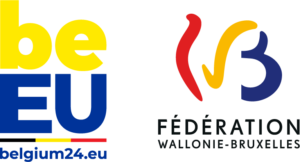
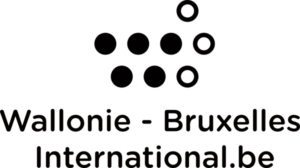

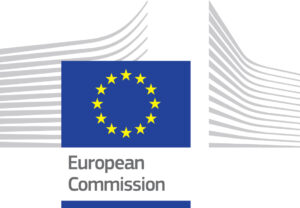 .
. 
